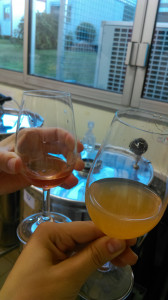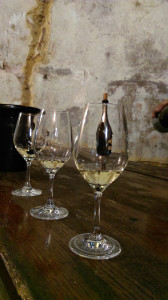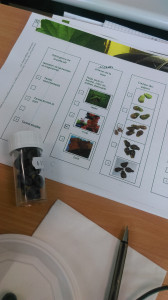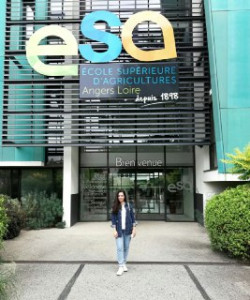Alina Oleinik
Master student faculty of wine technology and tourism business
The Erasmus + program is a non-profit program of the European Union for the exchange of students and teachers between universities of the countries of the European Union and several other countries. Thanks to this program, I became a member of a 6-month European student exchange program at L’ESA, Ecole Supérieure d’Agricultures, in the city of Angers, France.
The university itself is equipped for the convenience of students and teachers. In Ecole there are many scientific laboratories, large audiences for various lectures and seminars. It is also impossible not to mention the modern library (Médiathèque) in which students studied in their free time (according to the stories of French students, at home they practically don’t study and do all the tasks there). The library is equipped with computers, tablets, comfortable desks and reading places.
I was very impressed and pleasantly surprised with how attentively the university administration approached planning and equipment. Indeed, all the conditions were created for hard and fruitful work.
I can divide the study itself into three parts. On two of which I don’t really want to focus on, since these were general subjects, which are mainly directly related to the history and the development of agriculture.
The most important part of the training for me was the “Viticulture” module. As you can understand the whole course was aimed at studying winemaking in France. However, I immediately want to note that the French system of education is as follows – the first three courses of the guys study general technologies, and the fourth and fifth year, i.e. in the master study their specialty. Therefore, for this module, teachers at a fairly fast pace gave all the basics of winemaking and all the technology. The material can be said huge. The students themselves spoke and more than once confessed to me that learning is given to them difficult. But for me personally, this module was also very useful, despite the fact that I had studied most of the material long ago. The fact is that the program of the course included multiple trips to enterprises, laboratory works (the purpose of which was to produce wine independently), and training tastings.
The attitude of teachers to students is only positive. I found a common language with everyone. Many felt help and support. The teachers themselves said that they understand that it is difficult to study, especially for us, foreign students. The university administration also helped absolutely in all matters. And there was no such thing that I would come with any question, but they just shrugged it in front of me. The solution was always, if not immediately, then after a short time.
I did not regret that I went to study at L’ESA. This opportunity may not appear to everyone. And it came to me thanks to the Erasmus + program and the ONAFT teachers, and I brought it to life. The difficulty of studying in another country is knowledge of the language. Even if you impeccably possess them, you still will not understand something. I do not know the language well enough, but even this did not stop me from going to another country and studying here for six months. Therefore, learn the language and if you have the opportunity to go to study abroad, decide – you will not regret!




